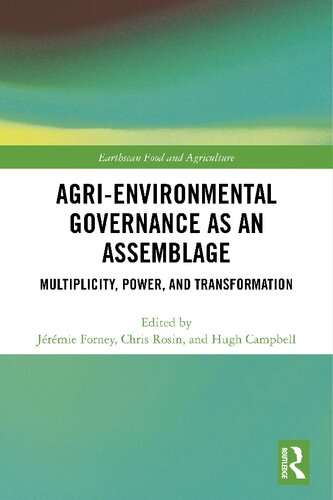

Most ebook files are in PDF format, so you can easily read them using various software such as Foxit Reader or directly on the Google Chrome browser.
Some ebook files are released by publishers in other formats such as .awz, .mobi, .epub, .fb2, etc. You may need to install specific software to read these formats on mobile/PC, such as Calibre.
Please read the tutorial at this link: https://ebookbell.com/faq
We offer FREE conversion to the popular formats you request; however, this may take some time. Therefore, right after payment, please email us, and we will try to provide the service as quickly as possible.
For some exceptional file formats or broken links (if any), please refrain from opening any disputes. Instead, email us first, and we will try to assist within a maximum of 6 hours.
EbookBell Team

5.0
88 reviewsIn recent decades, the governance of the environment in agri-food systems has emerged as a crucial challenge. A multiplicity of actors have been enrolled in this process, with the private sector and civil society progressively becoming key components in a global context often described as neoliberalization. Agri-environmental governance (AEG) thus gathers a highly complex assemblage of actors and instruments, with multiple interrelations.
This book addresses this complexity, challenging traditional modes of research and explanation in social science and agri-food studies. To do so, it draws on multiple theoretical and methodological insights, applied to case studies from Asia, Europe, Africa, and the Americas. It elaborates an emergent approach to AEG practices as assemblages, looking at the coming-together of multiple actors with diverse trajectories and objectives. The book lays the foundations for an encompassing theoretical framework that transcends pre-existing categories, as well as promoting innovative methodologies, which integrate the role of social actors – including scientists – in the construction of new assemblages. The chapters define, first, the multiplicities and agencies inherent to AEG assemblages. A second set tackles the question of the politics in AEG assemblages, where political hierarchies interweave with economic power and the search for more democratic and participative approaches. Finally, these insights are developed in the form of assemblage practice and methodology. The book challenges social scientists to confront the shortcomings of existing approaches and consider alternative answers to questions about environmental governance of agri-food systems.